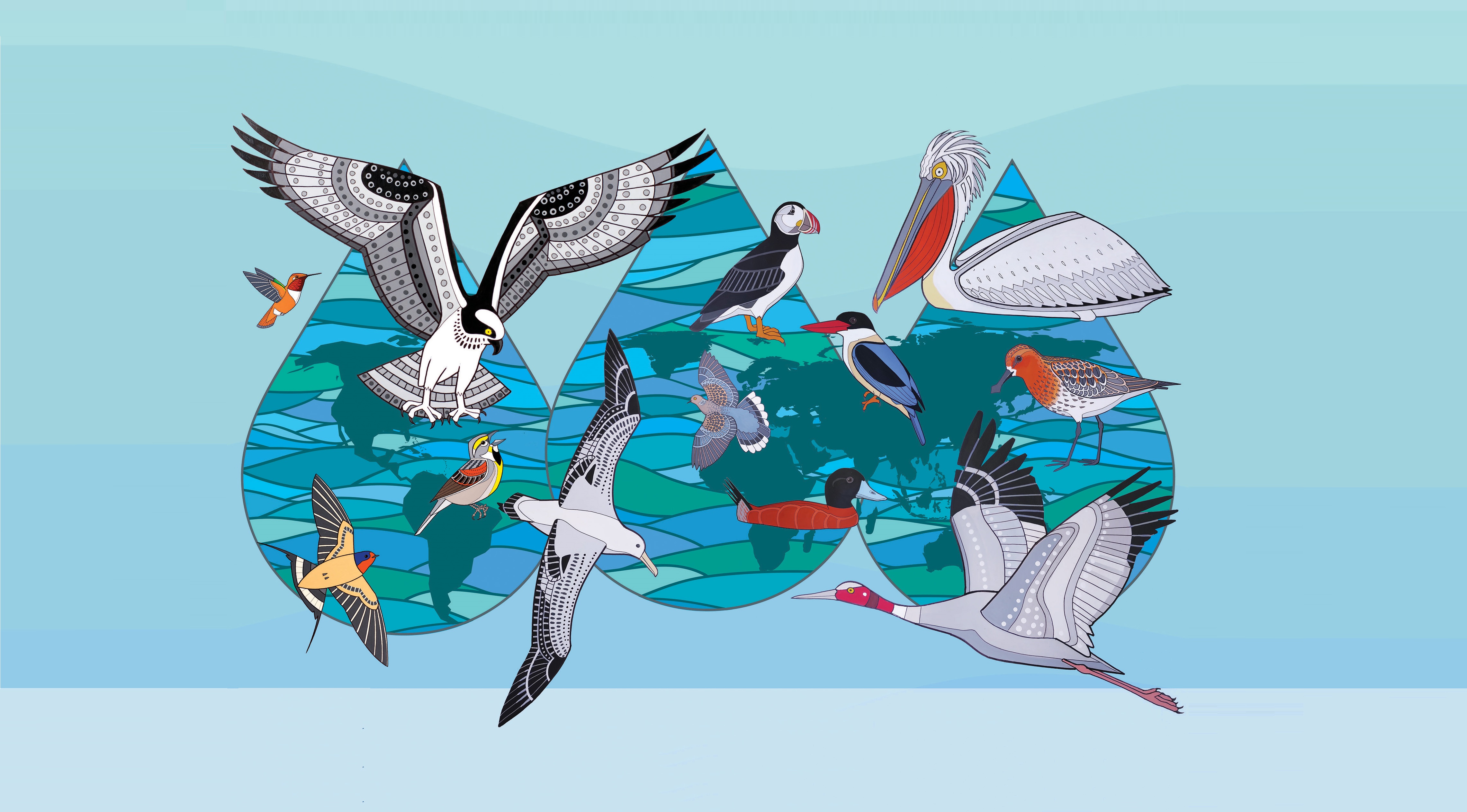 Augusto Silva
Augusto Silva
World Migratory Bird Day --14 October 2023
The migrations of birds bring wonder to the world. Anyone witnessing the annual migration of the snow goose or the little tern, from the tiny swallow-tailed hummingbird to the large spot-billed pelican, for example, cannot fail to be inspired. Migratory birds are also key players in the various ecosystems that they link together. They are an important part of the food chain and provide important ecosystem services such as pest control and plant pollination.
In turn, migratory birds depend on the ecosystems of their flyways; and they depend on water. Water is essential to all life here on Earth. Wetlands are frequently the focal points of flyways.
However, wetlands are rapidly disappearing, and migratory birds are being forced to alter their migration patterns because they are losing their water sources and their feeding and breeding grounds. In order to protect migratory birds and the ecosystems they rely on, urgent action is required to combat the main drivers of biodiversity loss: land/sea use change, over exploitation, pollution, invasive species, and climate change.
In December of 2022, the global community adopted the Kunming-Montreal Global Biodiversity Framework, an ambitious plan to halt and reverse biodiversity loss by 2030. The Framework contains action-oriented targets to reduce pollution, protect wildlife, minimise the impacts of climate change, and ensure agriculture, aquaculture, fisheries and forestry are managed sustainably, to name a few. It also aims to effectively conserve and manage at least 30% of the world’s lands, waters, coastal areas, and oceans, and to restore at least 30% of degraded ecosystems.
Implementation of the Kunming-Montreal Global Biodiversity Framework will help to reinforce ongoing efforts to help migratory birds under the Convention on Migratory Species and its various Agreements and the Ramsar Convention on Wetlands as well as the Convention on Biological Diversity. To achieve the aims of these agreements, everyone must be involved through a whole-of-society approach.
International cooperation is essential and necessary both for the conservation of migratory birds and for managing and protecting the world’s water resources.
Wetlands are rapidly disappearing, and birds are being forced to alter their migration patterns due to loss of water sources.
— David Cooper (@hdavidcooper) October 14, 2023
For #WorldMigratoryBirdDay, we must act to implement the #KMGBF in order to reduce pollution, and protect wildlife.
🔗: https://t.co/OvEjOqx9Xx pic.twitter.com/Kp1VpTD2gc
More information:
Kunming-Montreal Global Biodiversity Framework
Key Messages
Migratory birds and people need water to survive!
The increasing human demand for water, poor management, as well as pollution and climate change are the main threats. They are having a direct impact on the quantity and quality of water available to migratory birds.
Water management is a key element in sustainable development and vital for bird conservation.